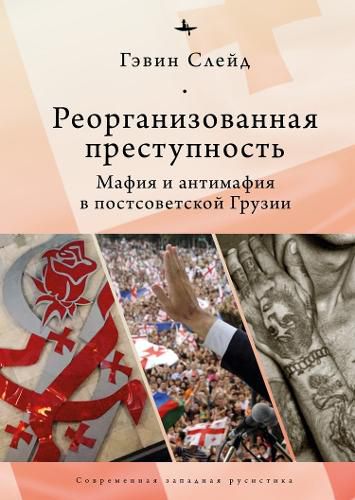Readings Newsletter
Become a Readings Member to make your shopping experience even easier.
Sign in or sign up for free!
You’re not far away from qualifying for FREE standard shipping within Australia
You’ve qualified for FREE standard shipping within Australia
The cart is loading…






Thieves-in-law' (vory-v-zakone in Russian) are career criminals belonging to a criminal fraternity that began in the 1930s in the Soviet prison camps. For reasons that the book attempts to explain, thieves-in-law became exceptionally prevalent in the former Soviet republic of Georgia. Here, by the 1990s, they formed a mafia network-criminal associations that attempt to monopolize protection in legal and illegal sectors of the economy. At this time, the mafia was in many ways more powerful than the state. In 2005, however, anti-organized crime policy was transferred from Italy and America to Georgia. Legislation targeting the thieves-in-law directly was successful in causing a steep decline in mafia influence and organized criminal activity. This book asks how and why this occurred. In particular, why did the thieves-in-law not resist the attack on them successfully? Based on extensive fieldwork and utilizing unique access to primary sources of data, such as police files, court cases, archives, and expert interviews, the book provides a case study of varying organized criminal resilience to state attack. It studies the dynamics of changing mafia activities, recruitment practices, and organization as these relate to changes in the socio-economic environment and, in particular, anti-organized crime policy in what is the first sustained, directed anti-mafia policy implemented in a post-Soviet country.
$9.00 standard shipping within Australia
FREE standard shipping within Australia for orders over $100.00
Express & International shipping calculated at checkout
Thieves-in-law' (vory-v-zakone in Russian) are career criminals belonging to a criminal fraternity that began in the 1930s in the Soviet prison camps. For reasons that the book attempts to explain, thieves-in-law became exceptionally prevalent in the former Soviet republic of Georgia. Here, by the 1990s, they formed a mafia network-criminal associations that attempt to monopolize protection in legal and illegal sectors of the economy. At this time, the mafia was in many ways more powerful than the state. In 2005, however, anti-organized crime policy was transferred from Italy and America to Georgia. Legislation targeting the thieves-in-law directly was successful in causing a steep decline in mafia influence and organized criminal activity. This book asks how and why this occurred. In particular, why did the thieves-in-law not resist the attack on them successfully? Based on extensive fieldwork and utilizing unique access to primary sources of data, such as police files, court cases, archives, and expert interviews, the book provides a case study of varying organized criminal resilience to state attack. It studies the dynamics of changing mafia activities, recruitment practices, and organization as these relate to changes in the socio-economic environment and, in particular, anti-organized crime policy in what is the first sustained, directed anti-mafia policy implemented in a post-Soviet country.